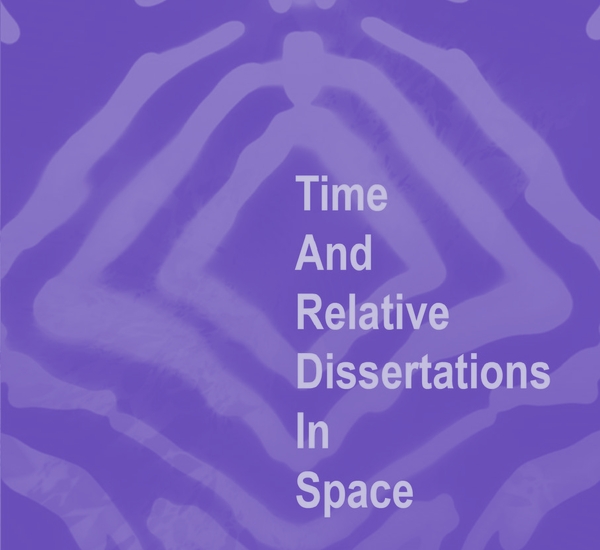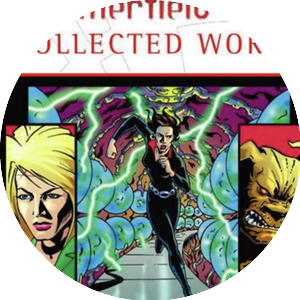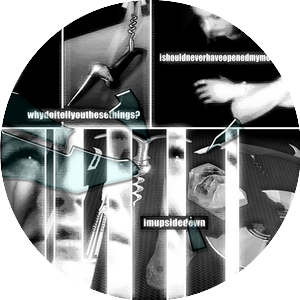Invitation
When I was at university, there was a guy called David Butler who used to appear in some of our lectures. He was studying for his PHD, and as undergraduates we didn’t really mix with him. But then Chris Sudworth got involved in the new student radio station at Manchester University, bring a group of student’s who wanted to write together to create a soap opera for the station, called Five Lives. The group was an odd mix, with some taking the whole thing very seriously and then me and one other student thinking that the whole thing would be much better as a surreal comedy. That other writer was David.
Through the regular read-throughs, I got to know David and discovered he was also a Doctor Who fan with a growing collection of Big Finish audios. We kept in touch, and ended up in the same writing group when David finished his PHD and got a job as a lecturer in the Drama Department. Part of the job for lecturers is showing that they have contributed to the sum of critical thinking in their field: David’s plan was to bring together a collection of new critical papers about Doctor Who that could be presented at a day conference. By this point, I was already a published Doctor Who author, and so he asked me if I would submit a paper.
Inspiration
David started organising his event in 2003, and at that point – post-Heritage and pre-Russell T Davis – my love of Doctor Who had waned. I’d gone from a completist to a cherry-picker, and whenever I was asked I would say that my favourite era of Doctor Who was the Virgin New Adventures era. When thinking about what I wanted to find out more about, the answer was obvious. It did also occur to me that I was friends with Peter Darvill-Evans and Paul Cornell on social media, and that it might be possible to interview them.
The Pitch
Initially, David only wanted a short proposal for the paper, detailing the areas it would cover and the methodology it would use. This was drafted and duly sent in, where it then disappeared inside the University processes: the day was being organised by David through the Drama Department, and they had to approve all the contributions and contributors. After a short delay, however, I was told that my paper had been accepted as the sole representative of the prose era of Doctor Who.
Outside Help
The first thing I did was reread the first four New Adventures, and the two Target novelisations that were reputed to have inspired them. I also dug out all the old Celestial Toyroom and DWM articles that I had that mentioned the New Adventures even tangentially. These gave me enough background on the era I wanted to focus on – the transition from novelisations to original fiction – to come up with a draft list of questions that I wanted to ask Peter Darvill-Evans and Paul Cornell. So then I had to make my initial approach.
I messaged both individually and politely told them about the day David was planning, and what my paper was intended to be about. I asked if they could spare a few minutes to answer the questions I had prepared over email, and then maybe answer any more that occurred to be after I had seen their answers. Both were incredibly encouraging, and were more than pleased to help. It was Paul Cornell who pointed out that David J Howe had written a series of articles about the early days of the Virgin New Adventures, and suggested I contact him: this not only led to some much more useful information I could include, but also inadvertently ended up with me writing The Albino’s Dancer for Telos Publishing.
I also had to take a little time to familiarise myself with the Harvard system of referencing, which was the default for anything published by Manchester University Press. It wasn’t a system I’d had any experience of, but I wasn’t long out of academia myself and it was fairly easy to pick up. All my various notes were written up into a first draft, and submitted to David Butler shortly after.
What Happened Next?
My paper was read over by David and the University, and was approved for presentation at the Time and Relative Dissertations in Space event scheduled for 1. July 2004. There were a number of papers collected for the intended book, and David had selected as many of those as he could for presentation on the day: I was included in the selection in part because I lived in Manchester and so could make my own way to the event without needing travel expenses. On the day, I made my way to the pub that I was sure David had said we were going to congregate in beforehand, only to find out that he had been saying we would meet there afterwards. Fortunately, David had underestimated how long it would take to present the papers, and so my absence meant that the event only over-ran by a couple of hours. At the time, I wasn’t too bothered not to have to stand in front of a room of strangers and talk about Doctor Who, although looking back I think I did possibly miss out on a useful experience.
With the day done, I went home and waited to hear from David about the book. And waited. And waited.
With one thing and another – and the lengthy process of getting the whole thing through the offices of the Manchester University Press – it was two years later when David came back to say that the book was getting near to being finalised. He gave me a few notes on the paper, and I took the opportunity to tidy it up a little. He also asked for most of the footnotes to be removed as they were considered too conversational for an academic paper. The final final draft was sent to David at the end of 2006, and then the book came out in November of the next year.
In the end, the book was fairly well received, but events had overtaken it: when it came out, Doctor Who was a very different thing and Time and Relative Dimensions in Space couldn’t really respond to that change. The delay also meant that I’d stopped thinking about it a long time ago, and so when it was finally published it came as something of a surprise. I didn’t expect it to lead to anything, and I was already busy with other things: however, I did get asked to write another factual article about Doctor Who because I’d contributed to the book, which was a pleasant surprise. That didn’t really come to anything, but for a while it was a nice little bonus.


